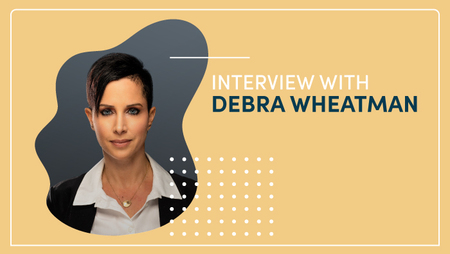Having an outstanding CV is the first step towards securing a job. How you choose to present yourself and your professional achievements within this document could determine your application success.
However, with so much (and often conflicting) advice out there, determining what employers really seek from a CV can be a challenge.
We spoke with Debra Wheatman, President of Careers Done Write, who shared her expert tips and insights into writing an effective CV/résumé with us.
The first thing Wheatman advises is to start researching the company you’re applying for a job with. Being aware of its mission, values and culture will help you understand whether you’re well-suited for the job.
Paying close attention to the job description is also key, Wheatman notes, as it helps you determine whether your skillset is compatible with the role and its requirements. It’s also a great way to spot keywords that can strategically incorporate into your CV and ultimately set you apart from the competition. Including your achievements is also a crucial element here.
Wheatman affirms that another essential component to application success is a clean CV format. Indeed, an easily readable document can help you get through any ATS and it allows employers to find the information they’re looking for without trouble.
As for the skills and traits employers seek from candidates, Wheatman indicates positivity, team spirit and autonomy to be three of the most important characteristics a candidate can have. That, along with adaptability, leadership and problem-solving skills, can make you an asset to any organisation.
Moving the discussion towards CV layouts, Wheatman recommends the reverse-chronological format for the average CV. Within this layout, it’s important to include a header with your contact details, a career summary, and a key competencies section. As for your work experience, using quantifiable information to demonstrate your performance and contributions within past roles is crucial.
Regarding what you shouldn’t include in your CV, Wheatman advises to keep clear of objective statements and irrelevant experience. You should also avoid adding your hobbies and interests. The information you include should be specific to the role you’re applying for and must demonstrate to employers how you can contribute to their company through measurable achievements. That said, stir clear from graphs and images as they can confuse ATSs.
Other things you should not include in your CV are your physical address, multiple phone numbers, references and, especially, salary requirements.
Going back to ATSs, Wheatman advises that the best way to make it past this software is to apply to jobs you’re qualified for. Again, placing an emphasis on keywords can help you highlight your suitability and pass the ATS – however, avoid using acronyms, even if they’re industry-related.
As a final step, Wheatman advises to give your social profiles a spruce, making sure that the information included in your CV matches that available anywhere else online.
Keeping these tips and tricks in mind while updating your CV will help you sway prospective employers your way and increase your chances of landing an interview.
For a more detailed tips and insights, make sure to watch the full video on our YouTube channel!
What are the most useful CV or résumé tips you’ve ever heard? Let us know in the comments section below!


